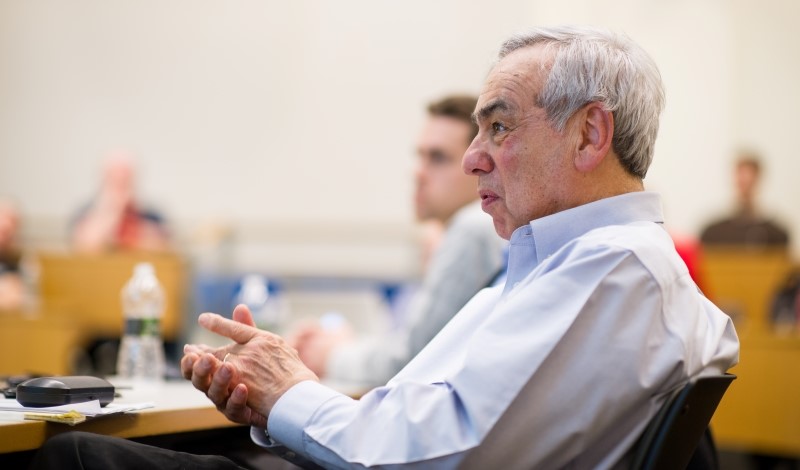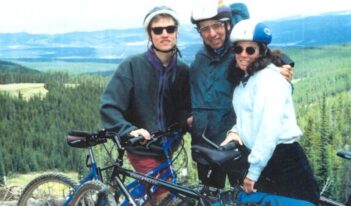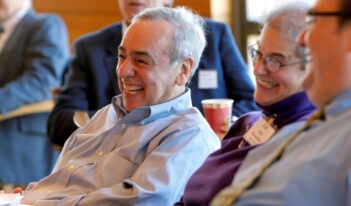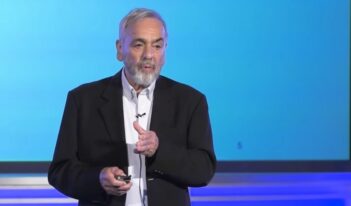
Howard’s extraordinary empathy and action had a profound influence on my life.
We all know that Howard Kunreuther was a creative and prolific economist whose psychological insights enriched our thinking about many facets of risk. He understood uniquely how people could cope with losses from technological threats and natural hazards like climate change, earthquakes, and floods. But there were other sides to Howard, and I will share a story that reveals one of them.
I first knew Howard from reading his papers. He was a warm and friendly face in the Judgment and Decision Making (JDM) community, but I could not say I knew him well until 2007. In that year, Phil Tetlock, my husband, and I were considering a move to UPenn. I planned to go to a conference at JDM that year, so Howard and I agreed to meet for breakfast on a Sunday morning to discuss the move. Shortly after I got to the restaurant and found Howard, my 13-year-old daughter, Jenny, called. I told Howard that I needed to take the call, and that I would be back as soon as possible. When I returned, I explained that Jenny was losing muscle strength and having trouble walking. She had begun tripping over things and developing a gait that indicated a weak left leg. I had taken her to the Children’s Hospital in Oakland, and then to the University of California San Francisco (UCSF). But I was furious with the pediatric neurology department at UCSF because getting things done happened at a snail’s pace, if they happened at all. I wanted them to do diagnostic testing, to find treatments, and to help us avoid additional muscle loss. But they had no sense of urgency; even getting an appointment for Jenny was close to impossible.
I told Howard the story and he was a godsend—extremely kind, caring, and willing to do anything he could to help. I needed a pediatric neurologist to diagnose Jenny’s problems and fix them. He said that he had connections with Penn Medicine and would see what he could do. Within a week, Howard emailed to say he had arranged for Jenny to come to CHOP, the Children’s Hospital of Pennsylvania, where she would see Dr. Richard Finkel, a fantastic pediatric neurologist, whenever we could come. I was thrilled and astonished that Howard had made it happen, especially because we really didn’t know each other well at that point.
Phil and I were teaching at UC Berkeley that semester, so when our classes were over, we got on a plane with Jenny and went to Philadelphia. We stayed for a week to complete tests and see specialists. I felt so grateful to Howard for moving mountains and getting me something that had been virtually unobtainable at UCSF. For that, I put him on my list of people who “could do no wrong.” Whenever I think of Howard, I will always feel enormous gratitude and appreciation.
Jenny ended up with several diagnoses, but the final one—verified upon autopsy—was ALS, or amyotrophic lateral sclerosis, caused by a de novo mutation in the FUS Gene. She lived until March 2009, just over one year after Howard had helped us begin a long and what-turned-out-to-be futile search for answers and cures. That was an excruciating time for Jenny, for us, for family and for friends. But it was the kindness and humanity of people like Howard who helped us get through it. He was a keen observer of human nature and a gentle soul with warmth, humor, and an enormous heart. He influenced the lives of many; his influence on mine was profound.
This essay is part of a series celebrating the life and scholarship of Howard Kunreuther, titled “Commemorating Howard Kunreuther.”




